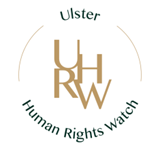Our organisation, the Ulster Human Rights Watch (UHRW), has recently deposited personal testimonies with the Public Record Office of Northern Ireland (PRONI) to create the Legacy of the Past Record (LPR) to give a ‘platform’ to people to tell their moving and harrowing stories about what terrorists did to them and their families.
Nine detailed accounts are now freely available to view online through PRONI’s e-Catalogue (search PRONI Ref: D4791/1*) which graphically and factually recount what happened to them. Unlike the people who carried out gun and bomb attacks, these innocent victims are solely motivated to tell the truth. Not for them any empty political justification for barbarism and brutality.
The victims tell it as it was and how, many years later, they still revisit with vivid clarity the hour, the day, the month they were robbed of a loved one for no reason whatsoever. The killers are long since out of jail and getting on with their lives but for many innocent victims suffering appalling physical injuries and debilitating psychological conditions, time stands still.
For them, there is no early release date, no amnesty, no line in the sand and no forgetting what happened. They are the permanent victims of ‘The Troubles’ where, for many, closure remains elusive.
Our nine stories feature, for example, a sister whose school teacher brother was gunned down at the top of the stairs in their east Belfast home. Senseless. Pointless. Another victim, a young woman on a bus on her way from work, burned by a petrol bomb and dying a short while after. And a third, a baby, killed in his pram by a bomb placed at a furniture store.
Preserving these unique historical narratives with PRONI is a first for us and we would like to see this developed further. The nine narratives are our baseline and in coming months, we believe the Legacy of the Past Record could be expanded to include other victims. Further developments could involve audio-visual content.
Work of this nature addresses a deficit and a dreadful shortcoming in how we deal with the past and what decent people had to endure. For too long, the voice of the mother who lost a son or daughter or a police officer or soldier who was left permanetly disabled from an under-car booby-trap bomb went unheard and unheeded.
Now, at long last, people who were the innocent victims of a senseless and futile ‘war’ are given the opportunity to balance the books, as it were. They will inject objectivity and honesty into the public square and they must be listened to by those in power. They are also a primary first-hand source for serious students of history committed to exploring the unvarnished truth of what happened in Northern ireland for more than a quarter century.
The voices of family members of these nine innocent victims who were courageous enough to step forward to relate their stories are a simple yet effective counter to the unapologetic propagandists who seek to justify murder and anarchy.
The perpetrators of some of the vilest crimes are not the ones who matter. No, the people they maimed and murdered, and their families, are the ones who matter and deserve respect and practical assistance.
We now have the Victims’ Payments Scheme up and running but, so far, no financial awards have been made. We in the UHRW appreciate that individual assessments are necessary as part of the process, but that should not be a long drawn-out exercise, but rather one that is done with the minimum of fuss and maximum sensitivity.
UHRW Advocacy Service has helped many people complete their applications for this payment scheme. Incident and impact statements are part of the process and we saw our role as demystifying and simplifying what had to be done and will continue to do so for others who may need our assistance.
We have to believe that 2022 will be a new beginning for those in our community who did nothing to warrant the murderous attentions of the bomber or gunman. Our workload this year will see us continuing to ensure that no innocent victims are left behind.
